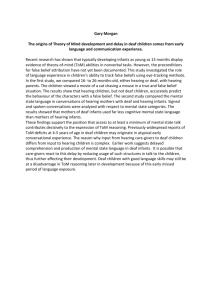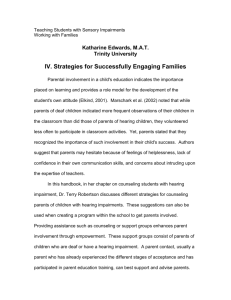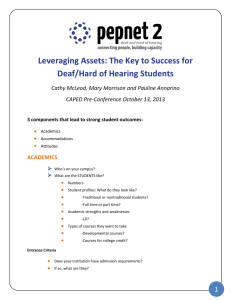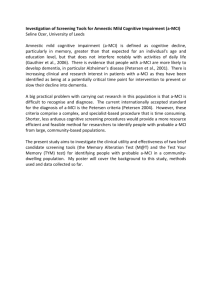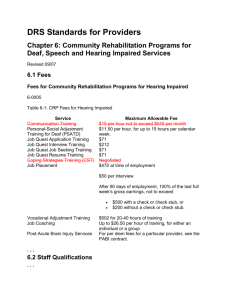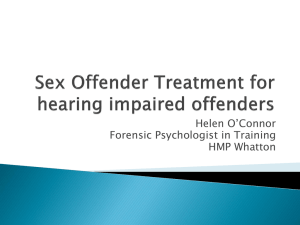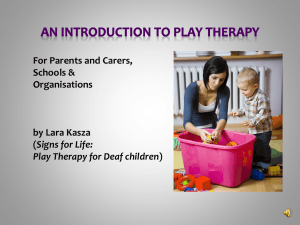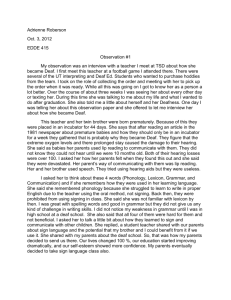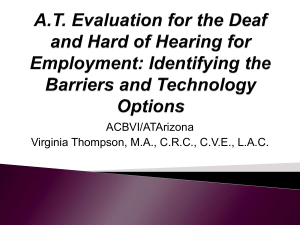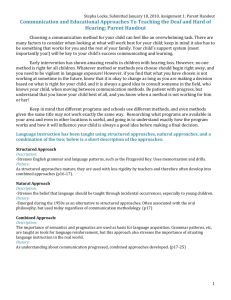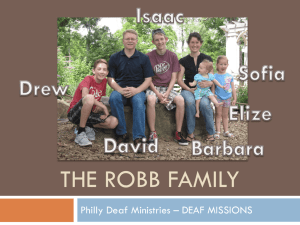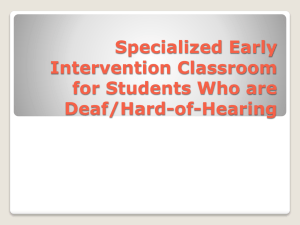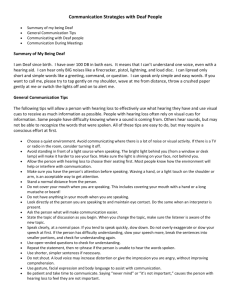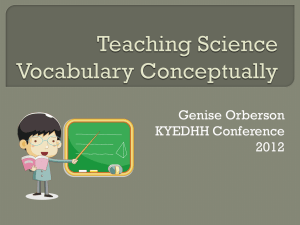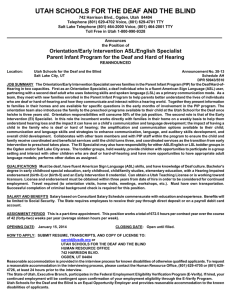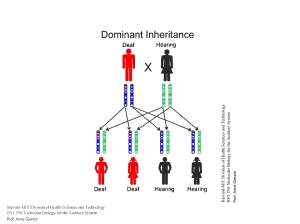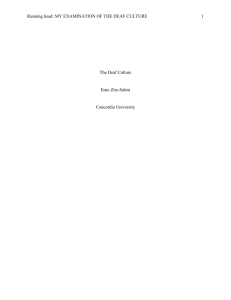Cross Cultural Competence - A Look at Bicultural Relationships
advertisement
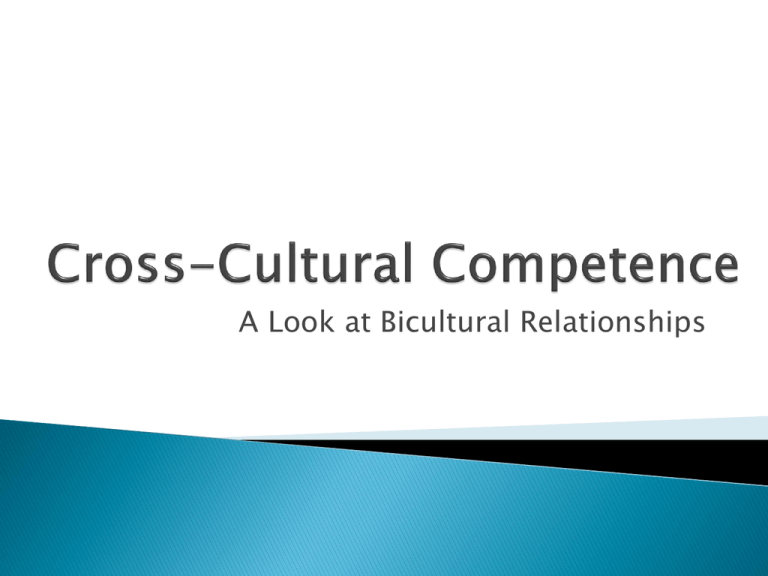
Roger Williams A Look at Bicultural Relationships 5% of all marriages are bi-cultural 30 - 35% of all Asian and Hispanic marriages are bicultural 2.4% all people multiracial 90% of Deaf children have hearing parents 90% of Deaf adults marry other Deaf adults Each partner must be aware of their own respective culture, the values, attitudes, mores and behavior patterns that form the background of daily existence. A continuing discussion must take place in which the partners must agree on an alternative which meets their needs at that time. Both partners must be willing to listen to the other with an open mind and a recognition that cultural differences exist. Both partners must be willing to reveal elements of their culture and also their relationship with and feelings about that culture. Partners must be able to communicate effectively with each other. One way adjustment: Alternative adjustment: •One partner adopts the cultural pattern of the other. •At times one cultural pattern is consciously chosen, at times the other. Simultaneous adjustment: •Similar to an alternative adjustment, cultures are mutually respected and couples may use both cultural patterns for certain situations. Mid-point compromise: •Partners mutually agree on a solution between their respective positions. Mixing adjustment: •A combination that represents some of both cultures is consciously adopted. Creative adjustment: •Partners decide to give up their respective cultures in favor of a new behavior pattern. Cultural Awareness Yourself Multicultural Your Text here Planning Survival Skills Your Family The Community Learn about other culture Know respectful behavior Identify a cultural guide Gain entrée into the community Know your own cultural background Recognize your own stereotypes and biases Gain knowledge of cultural history and heritage Be aware of other’s perceptions Recognize effects of -ism on the child/partner Social Support Language Values Community Title The Arts Knowledge Customs Identify members of the community Develop a relationship with community organizations Have regular contact with the minority community Have books, magazines, artwork, dolls and toys that are like your child/partner Make friends with adults and families that are multiracial/multiethnic Seeks services and contacts that will support your child/partner Biracial/bicultural adoptions and marriages ◦ ◦ ◦ ◦ ◦ ◦ Misunderstandings Assumptions Social pressure Societal reactions Family response NABSW position paper Education children about realities of _____ism Help child/partner develop strategies to cope with prejudice or _____ism Help the child/partner develop a sense of pride Seek help from adults in the minority community for guidance in how to cope with ____ism Develop strategies to deal with insensitive questions and to discourage bias • Deaf Church • Children use ASL • TTY • Cultural view of Deafness • Support residential schools • Simultaneous Communication • Deaf/Hearing Groups • Integrated Church w/Interpreters • Children use verbalgestural with Deaf parent • Two Phone lines • Voice & TTY • Support day schools Hearing Culture • Deaf Clubs/Organizations Mixed Cultures Deaf Culture • American Sign Language • Spoken English • Hearing Organizations • Hearing Church • Children use speech with both parents • Voice Telephone • Pathological view of Deafness • Support mainstreamed Schools


